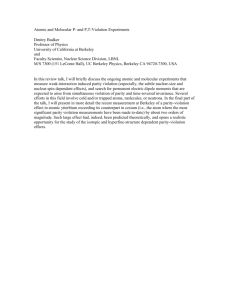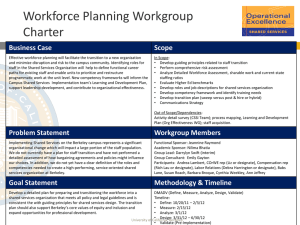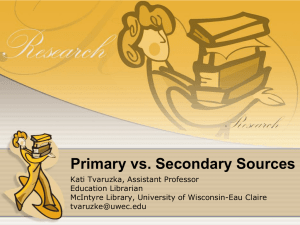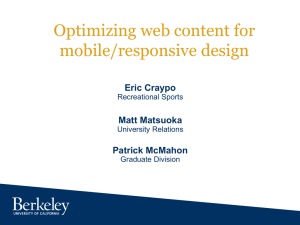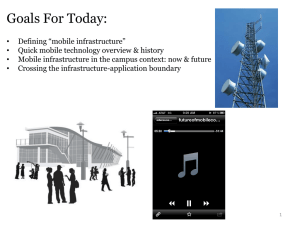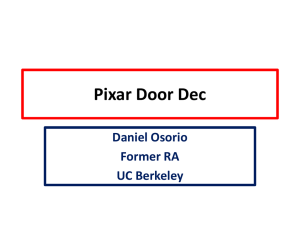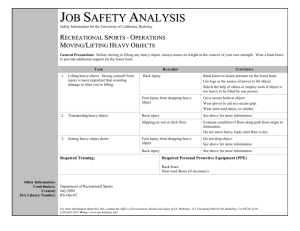early care & education programs and services
advertisement
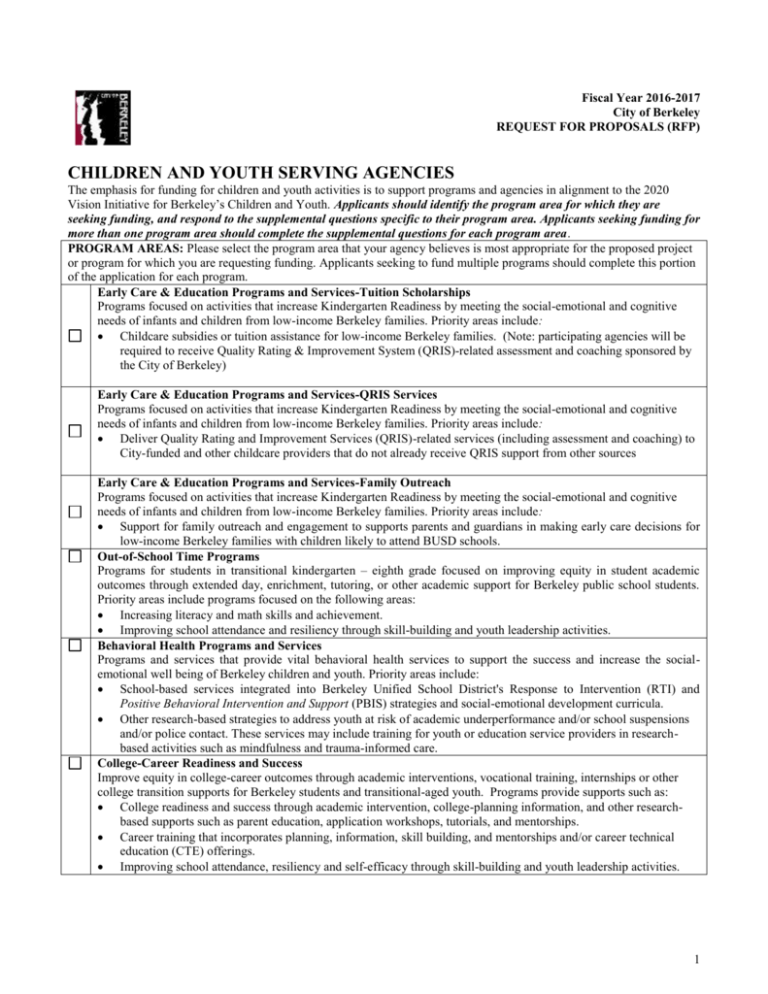
Fiscal Year 2016-2017 City of Berkeley REQUEST FOR PROPOSALS (RFP) CHILDREN AND YOUTH SERVING AGENCIES The emphasis for funding for children and youth activities is to support programs and agencies in alignment to the 2020 Vision Initiative for Berkeley’s Children and Youth. Applicants should identify the program area for which they are seeking funding, and respond to the supplemental questions specific to their program area. Applicants seeking funding for more than one program area should complete the supplemental questions for each program area. PROGRAM AREAS: Please select the program area that your agency believes is most appropriate for the proposed project or program for which you are requesting funding. Applicants seeking to fund multiple programs should complete this portion of the application for each program. Early Care & Education Programs and Services-Tuition Scholarships Programs focused on activities that increase Kindergarten Readiness by meeting the social-emotional and cognitive needs of infants and children from low-income Berkeley families. Priority areas include: Childcare subsidies or tuition assistance for low-income Berkeley families. (Note: participating agencies will be required to receive Quality Rating & Improvement System (QRIS)-related assessment and coaching sponsored by the City of Berkeley) Early Care & Education Programs and Services-QRIS Services Programs focused on activities that increase Kindergarten Readiness by meeting the social-emotional and cognitive needs of infants and children from low-income Berkeley families. Priority areas include: Deliver Quality Rating and Improvement Services (QRIS)-related services (including assessment and coaching) to City-funded and other childcare providers that do not already receive QRIS support from other sources Early Care & Education Programs and Services-Family Outreach Programs focused on activities that increase Kindergarten Readiness by meeting the social-emotional and cognitive needs of infants and children from low-income Berkeley families. Priority areas include: Support for family outreach and engagement to supports parents and guardians in making early care decisions for low-income Berkeley families with children likely to attend BUSD schools. Out-of-School Time Programs Programs for students in transitional kindergarten – eighth grade focused on improving equity in student academic outcomes through extended day, enrichment, tutoring, or other academic support for Berkeley public school students. Priority areas include programs focused on the following areas: Increasing literacy and math skills and achievement. Improving school attendance and resiliency through skill-building and youth leadership activities. Behavioral Health Programs and Services Programs and services that provide vital behavioral health services to support the success and increase the socialemotional well being of Berkeley children and youth. Priority areas include: School-based services integrated into Berkeley Unified School District's Response to Intervention (RTI) and Positive Behavioral Intervention and Support (PBIS) strategies and social-emotional development curricula. Other research-based strategies to address youth at risk of academic underperformance and/or school suspensions and/or police contact. These services may include training for youth or education service providers in researchbased activities such as mindfulness and trauma-informed care. College-Career Readiness and Success Improve equity in college-career outcomes through academic interventions, vocational training, internships or other college transition supports for Berkeley students and transitional-aged youth. Programs provide supports such as: College readiness and success through academic intervention, college-planning information, and other researchbased supports such as parent education, application workshops, tutorials, and mentorships. Career training that incorporates planning, information, skill building, and mentorships and/or career technical education (CTE) offerings. Improving school attendance, resiliency and self-efficacy through skill-building and youth leadership activities. 1 DRAFT -- 10.22.2014 CITY OF BERKELEY APPLICATION SUPPLEMENTAL QUESTIONS: EARLY CARE & EDUCATION PROGRAMS AND SERVICES For agencies applying for subsidies/tuition scholarships: 1. How do you structure your activities and environment to meet the learning and socio-emotional needs of your children? 2. Please describe how teachers and staff are supported in their work. Include how much paid time is provided for staff planning and reflection. 3. What are your family engagement opportunities? How do you work with the parents/guardians of the children you serve? 4. Please describe how you support the transition to kindergarten for your children, particularly in the case of children entering Transitional Kindergarten (TK) or Kindergarten (K) in Berkeley public schools. 5. For each of the past three years, how many children have you had transition to TK/K? How many of those children enrolled into a Berkeley Unified School District school? Fall 2014 Fall 2013 Fall 2012 Number of children entering TK / K Number of children entering TK/K that enrolled in BUSD 6. Explain any modifications to services or programming that have been made based on internal or external evaluations, client satisfaction surveys or client outcome data. For agencies applying for administering QRIS services: 1. What is your experience in working with Quality Rating and Improvement System (QRIS) and providing QRIS related assessments and coaching for childcare providers? 2. Describe your relationship to childcare providers in Berkeley. How do you anticipate successfully outreaching to and engaging childcare providers, particularly family day care providers that might be uncertain about participating in QRIS related activities? 3. How would you structure a program for administering QRIS services for a diverse group of childcare providers? For agencies applying for family outreach 1. Describe how you would structure a program and the associated activities to engage families and kin-care providers to inform them about child care quality and Kindergarten readiness. 2. How would you identify and outreach to families, with the goal of reaching low-income families in Berkeley that are likely candidates to enroll in BUSD? 3. Describe your experience working with diverse, low-income families, including kin-care providers. 2 DRAFT -- 10.22.2014 CITY OF BERKELEY APPLICATION SUPPLEMENTAL QUESTIONS: OUT-OF-SCHOOL TIME PROGRAMS 1. Please identify the primary skill(s) of the out-of-school time program for which you are seeking funding. Please select no more than two skills. Literacy-skill development Social-Skills/ Youth Leadership 2. 3. 4. 5. Mathematics-skill development Homework Completion/ Habits of Work Other skill-development. Please identify: How do your program activities support literacy and math skill development, school engagement and/or positive behaviors of Berkeley Unified School District students? How do you structure your activities and environment to meet the learning and socio-emotional needs of your students? How does your program complement school day instruction, for example Common Core or Teachers College Reading Writing Project curriculum? Please describe your agency’s approach to the supervision and training of tutors, volunteers or interns. 6. Explain any modifications to services or programming that have been made based on internal or external evaluations, client satisfaction surveys or client outcome data. 7. Will the project collaborate with other service providers (including schools or City programs) in the community to achieve the outcomes previously listed to maximize benefit to the clients/households served? Yes No If Yes, briefly describe how your program/project will collaborate with existing services providers and/or community resources: Please attach a copy of the Memorandum of Understanding, Letter of Support or Contract agreement between the Agency and the Partner(s), if available. This memorandum might include the goals of the partnership, any shared responsibility for data collection or outreach to clients, and frequency of informal and formal communication between partners. 3 DRAFT -- 10.22.2014 CITY OF BERKELEY APPLICATION SUPPLEMENTAL QUESTIONS: BEHAVIORAL HEALTH SERVICES 1. Please identify the primary service for which you are seeking funding. You may indicate more than one: School Based Behavioral Health Service Community Based Behavioral Health Service Other service area: Please identify: _____________________________________________________________ 2. If you are a school-based provider, describe your familiarity with the behavioral health framework used by BUSD, and what role you will play within that framework. If you are a program that is focused on affecting school climate, training of staff, or changing attitudes and behaviors within a community, describe how this program/service will translate to improved learning outcomes for students. What evidence do you have to support this? Describe how your program will address social-emotional factors that may prevent students from succeeding academically. Describe how City funds will complement other funding (e.g. Medi-Cal) and other mental health resources. What do you do for BUSD students who need additional services beyond what you provide? Describe the type of additional services that are sometimes needed for your clients. Do you have systems or agreements in place with other organizations that provide these additional services? In the table below, represent the uptake on referrals your program made to other services last year. 3. 4. 5. 6. For Fiscal Year 2014 Number of BUSD clients Total served by program Total referred for additional service Total that followed through on referral 7. Please describe your agency’s approach to the supervision and training of tutors, volunteers or interns. 8. Explain any modifications to services or programming that have been made based on internal or external evaluations, client satisfaction surveys or client outcome data. 9. Will the project collaborate with other service providers (including schools or City programs) in the community to achieve the outcomes previously listed to maximize benefit to the clients/households served? Yes No If Yes, briefly describe how your program/project will collaborate with existing services providers and/or community resources: Please attach a copy of the Memorandum of Understanding, Letter of Support or Contract agreement between the Agency and the Partner(s), if available. This memorandum might include the goals of the partnership, any shared responsibility for data collection or outreach to clients, and frequency of informal and formal communication between partners. 4 DRAFT -- 10.22.2014 CITY OF BERKELEY APPLICATION SUPPLEMENTAL QUESTIONS: COLLEGE-CAREER READINESS AND SUCCESS PROGRAMS 1. Please identify the primary objective(s) of the program for which you are seeking funding. You may indicate more than one: Academic interventions to prepare middle or high school students for college-career readiness and success Planning information services (particularly financial aid and college admissions) to youth and families for college-career readiness and success Create on-ramps to get back on the college track Ease the transition to college Cohort and/or youth mentorship and supports to develop college-career readiness and success Career-technical supports and/or courses to high school or transitional youth for job-skills Career technical training and/or job-skill development through internships or apprenticeships Other service area. Please identify: 2. 3. How does your program foster perseverance and independence in your students? How do you structure your activities and environment to meet the learning and socio-emotional needs of your students? If you are an employment-focused program, please describe how any trainings or internship experiences you provide can lead to an industry recognized credential or job opportunity. What connections do you maintain with your students after they graduate high school? For each of the past 3 years, how many students in your program have successfully transition to a post-secondary institution? 4. 5. FY 14 FY13 FY 12 Number enrolled in postsecondary Percent enrolled in postsecondary (out of all graduating senior in programs) 6. Please describe your agency’s approach to the supervision and training of tutors, volunteers or interns. 7. Explain any modifications to services or programming that have been made based on internal or external evaluations, client satisfaction surveys or client outcome data. 8. Will the project collaborate with other service providers (including schools or City programs) in the community to achieve the outcomes previously listed to maximize benefit to the clients/households served? Yes No If Yes, briefly describe how your program/project will collaborate with existing services providers and/or community resources: Please attach a copy of the Memorandum of Understanding, Letter of Support or Contract agreement between the Agency and the Partner(s), if available. This memorandum might include the goals of the partnership, any shared responsibility for data collection or outreach to clients, and frequency of informal and formal communication between partners. 5

